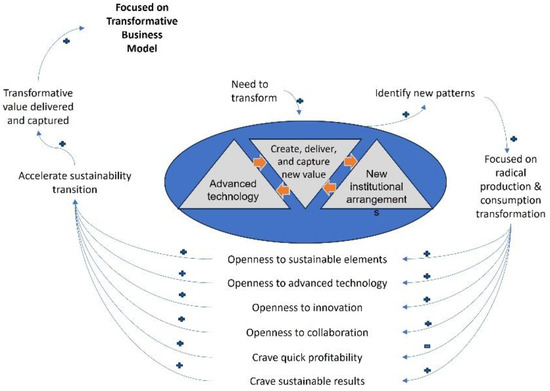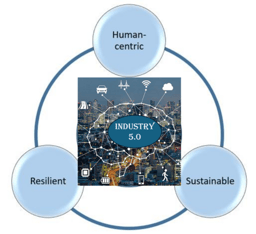REVOLUTIONIZING SUSTAINABILITY: TRANSFORMATIVE BUSINESS MODELS BRIDGING LOW CARBON SOCIETY
Published in Social Sciences
In the ever-evolving landscape of business, a new wave is sweeping through the corridors of innovation. As the world grapples with environmental concerns and the pressing need for sustainability, start-ups are emerging as the unsung heroes of change. A recent study has cast a spotlight on the symbiotic dance between cutting-edge technologies and transformative business models, showcasing a promising path toward a greener, more sustainable future.

The Tech Titans of Sustainability
Imagine a world where start-ups harness the power of artificial intelligence (AI) and machine learning (ML) to not just thrive, but to revolutionize the game. The study, spanning European start-ups from 2014 to 2020, reveals a staggering trend – over 60% of sustainable start-ups are diving headfirst into a transformative business model (TBM). This isn't just a shift; it's a seismic transformation.
Decoding Transformative Business Models
Enter the realm of TBMs, a term coined to describe the game-changers of the business world. Think Airbnb, Uber, Netflix – these disruptors, once start-ups themselves, rewrote the rulebook. TBMs are not just about making money; they're about rewriting the narrative. It's about using technology not as a tool but as a catalyst for radical change.
Circular Economy and Sustainable Development Goals (SDGs) Unleashed
But here's the twist – it's not just about technology. These start-ups aren't just chasing profits; they're weaving sustainability into their DNA. Every single one of the sustainable start-ups studied consciously embraces the principles of Sharing Economy (SE) Circular Economy (CE) and aligns with one or more Sustainable Development Goals (SDGs). It's a conscious effort to do well by doing good.
C2B and B2B2C: The Decarbonization Champions
Ever heard of Consumer-to-Business (C2B)? It's a game-changer. This model urges consumers to return products rather than discarding them, promoting a circular economy. Then there's the hybrid Business-to-Business-to- Consumer (B2B2C) model, where adaptability and quick decision-making reign supreme. Thanks to these models, start-ups are not just adapting to change; they're driving it.
Tech Talk with a Green Twist
Beyond the numbers and jargon, this study is a testament to the evolving language of business. It's a conversation between technology and sustainability, a dialogue that holds the key to a low-carbon economy. The integration of advanced technologies, sustainable elements, and innovative business models paints a vivid picture of the future – a future where companies don't just survive; they thrive while leaving a positive impact.
Conclusion: The Blueprint for Tomorrow
As we navigate the challenges of a rapidly changing world, these start-ups are not just offering solutions; they are becoming the solution. The study serves as a blueprint, not just for businesses but for policymakers and anyone with a stake in our planet's future. It's a call to embrace technology, not as a disruptor, but as a partner in creating a world where business isn't just about profits; it's about creating a legacy of sustainability. The green revolution is here, and it's being led by the tech titans of sustainability – the start-ups.
Full study can be accessed at: https://www.preprints.org/manuscript/202308.0474/v1


Please sign in or register for FREE
If you are a registered user on Research Communities by Springer Nature, please sign in